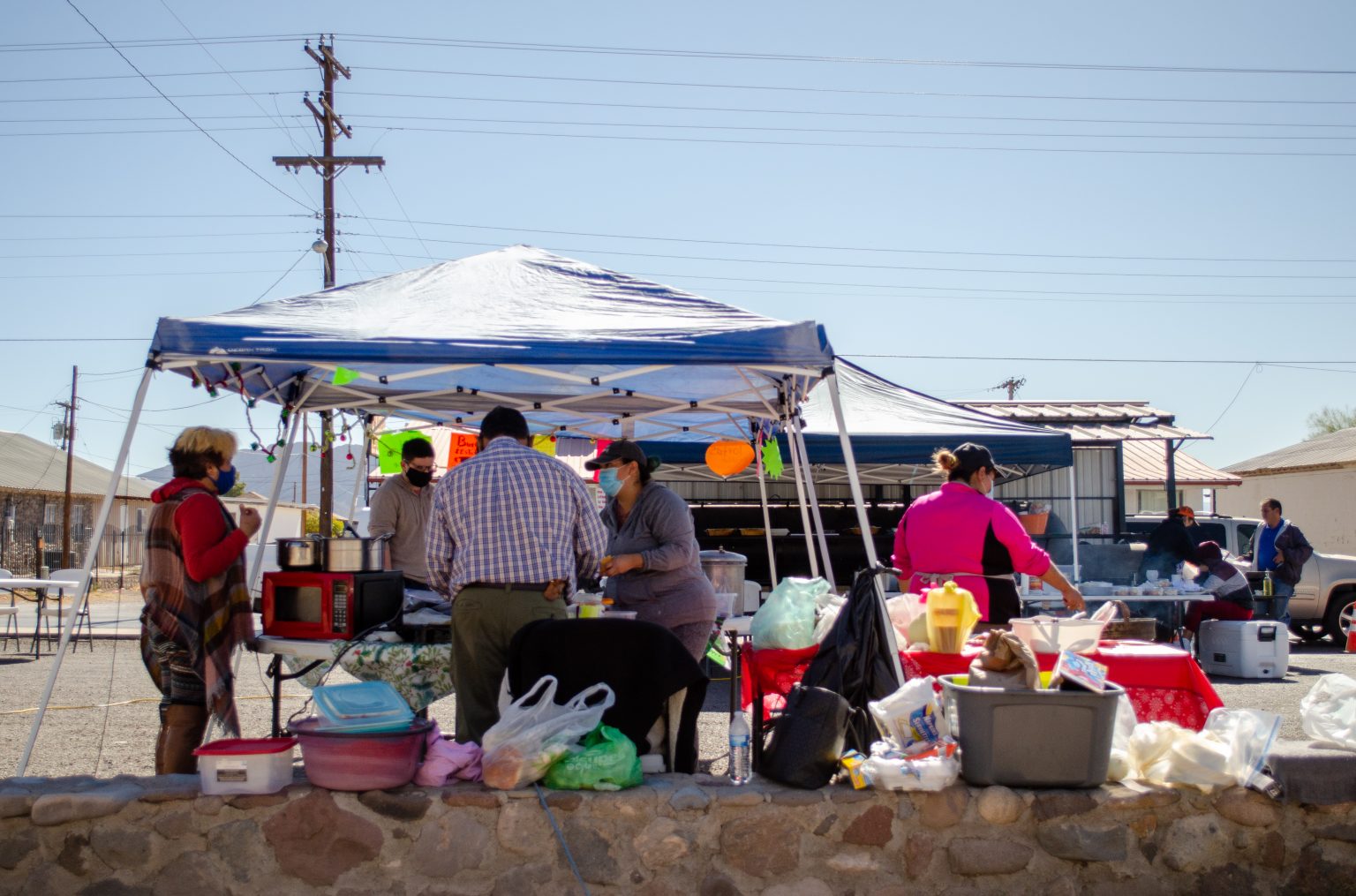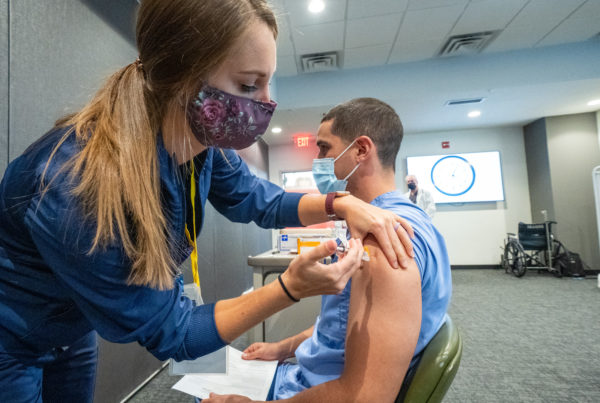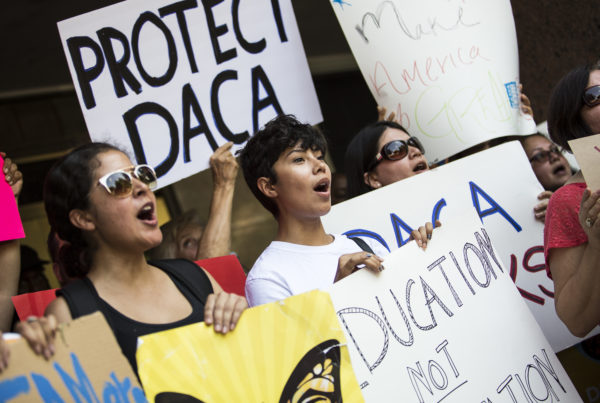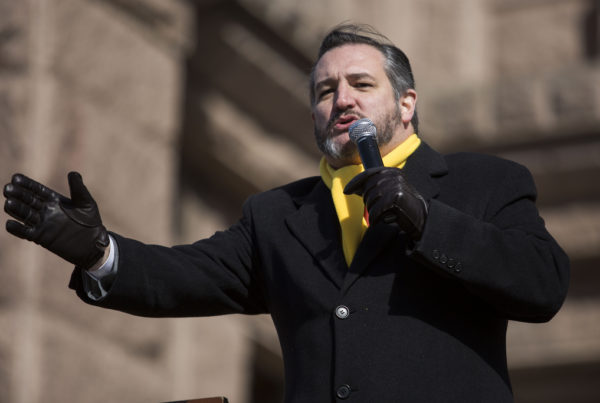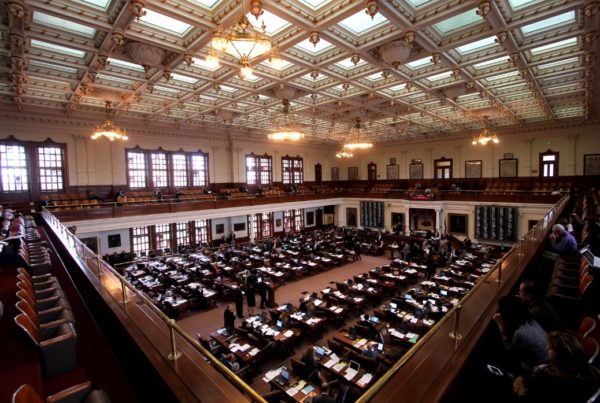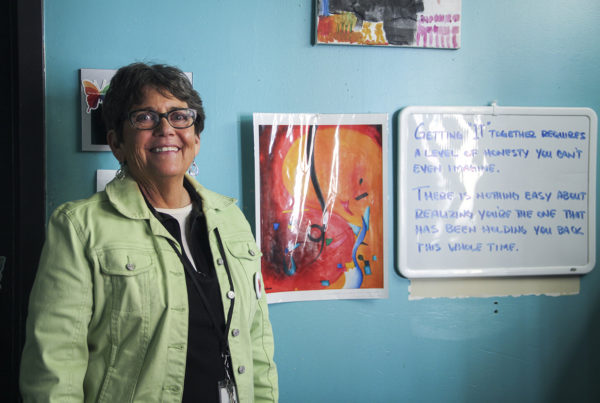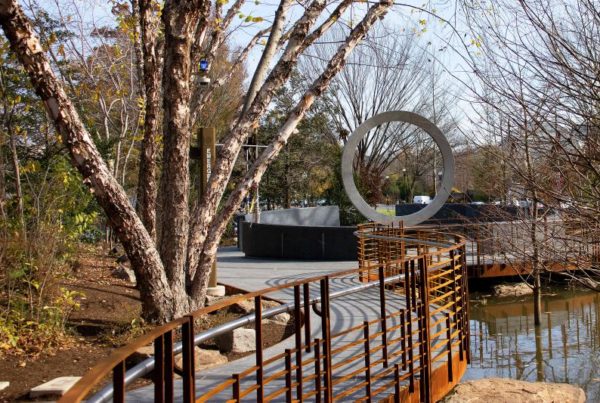From Marfa Public Radio:
Inside Presidio’s emergency services building, a high-ceilinged warehouse that usually stores fire trucks and ambulances, hundreds of residents wait hours to get tested for the coronavirus one afternoon in late November.
This testing, although infrequent, has become one of the few ways Presidio residents can get screened for COVID-19. There isn’t a hospital here, there aren’t pharmacy chains offering tests and what limited coronavirus testing materials medical facilities do have, they’re reserving for patients showing symptoms.
“We don’t have access to anything else, just the basic stuff,” says Areli Perez, one of the nearly 600 residents who will get tested on this day in November.
Perez, 41, a teacher with Presidio Independent School District, says whenever there’s public testing, she feels she has to stop by.
“You’re worried about, what if you’re sick. And then, what’s next?”
With irregular testing, local health authorities say it’s impossible to get an accurate snapshot of where active cases actually stand.
“Testing is limited to whenever it becomes available in our community, it’s not on a daily basis for most people,” says Presidio mayor John Ferguson. “So that’s hurting us in terms of staying on top of identifying who’s infected.”
The Big Bend region’s limited access to quality healthcare has long been apparent for residents here. But the pandemic has revealed the widening gulf of inequities Presidio residents face. Since the pandemic began, communities of color in Texas have been disproportionately impacted. To date, Hispanic Texans make up about 53% of all coronavirus-related deaths while only accounting for 39% of the state’s population.
Presidio has seen a larger share of deaths and cases compared to other communities in the Big Bend region, such as Marfa and Alpine.
Healthcare Hurdles In Presidio
Presidio residents have long faced uneven access to healthcare in this rural stretch of the Texas-Mexico border, but the pandemic has made the stark inequalities even more apparent.
When looking at the city’s share of COVID-19-related cases and deaths, Dr. Katie Ray says there are several factors.
“First of all, it’s the largest population center in the county,” says Dr. Ray, who works at Presidio County Health Services, one of just two medical clinics in the city. “So just by the numbers, we would expect them to have more cases and deaths.”
On top of that, Presidio households are large and intergenerational, making it harder to social distance around aging family members, who are at a higher risk for the coronavirus.
Then, there’s Presidio’s location.
“It’s a 90-mile drive to the hospital, and many of the patients don’t have vehicles, don’t have transportation and easy access,” explains Dr. Ray.
And beyond the Big Bend region, better equipped hospitals in El Paso and Odessa and Midland have shrinking hospital capacity and are accepting fewer patient transfers from rural areas.
At first, the area’s remote location provided a sense of protection. But now, that distance is a barrier, says Malynda Richardson, the emergency medical services director for the city of Presidio.
“My specific concern for the city of Presidio is that we have a very vulnerable population, and that the virus spreads through that population to an extent that we don’t have the medical resources in the region, whether you’re talking about EMS or clinic or hospital, to take care of them.”
Those vulnerabilities include Presidio’s aging population, many with underlying conditions like diabetes and hypertension—all high-risk factors for the coronavirus.
So far, Richardson says, the city is managing, but with little help from the state, there isn’t much else they can do.
“If we don’t get a handle on the infections, the potential is there to overwhelm the local resources,” says Richardson.
As of Dec. 21, there have been 555 coronavirus cases and 13 deaths in Presidio County, according to data from the Texas Department of State Health Services.
The majority are from the city of Presidio, according to local health authorities. They say the cause behind recent rising recent cases are fatigue, residents bucking safety recommendations, and the city’s status as a hub for regional travel.
The high cases concern Perez, who’s worried about her family. She says she had to stop visiting her grandmother in Presidio, fearing she could get her sick. And she’s had to rethink seeing her parents who live in neighboring Ojinaga—the city of roughly 26,000 has nearly 800 known active cases.
Perez, like many here, is used to traveling between the two cities to eat, shop, and visit family. Now, she feels she can’t do that as often, and any visits with family are brief, distanced, and void of the typical warm embraces.
What’s more, Perez is bothered by her district’s recent decision to end remote learning.
“It’s all a lot to process,” she says.
“I’ve been having some anxiety attacks at night,” says Perez at her home in Presidio. “Not sleeping at all.”
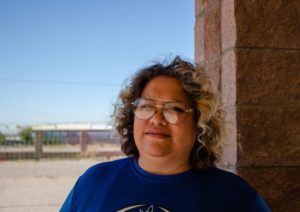
Presidio resident Areli Perez says throughout the pandemic she’s had anxiety attacks, worrying about if she’ll get sick and what would happen to her children.
She finds herself lying awake at night, thinking what happens if she doesn’t wake up? Or what if she wakes up sick?
She doesn’t tell her children about her anxiety. She says she doesn’t want to worry them.
“Estás pensando: y si no me voy a despertar, y si me despierto enfermo.., entonces en una situación bien difícil.”
It’s a difficult situation and things feel hopeless for residents here, says Perez, whose family is now having to navigate another heartbreaking reality brought on by the pandemic: saying goodbye to family members who die from COVID-19.
“One of my uncles, he passed away,” says Perez. “It’s difficult to process.”
What hurts her the most, she says, is her family can’t be there for each other in person. Not her mom in Ojinaga and not her grandmother, who only wants to say goodbye to her own son. “Mi abuelita no pudo ir. No pudo estar con él, despedirse de él,” Perez said.
Like other residents here, Perez is taking things one day at a time. She says it’s all she can do.


